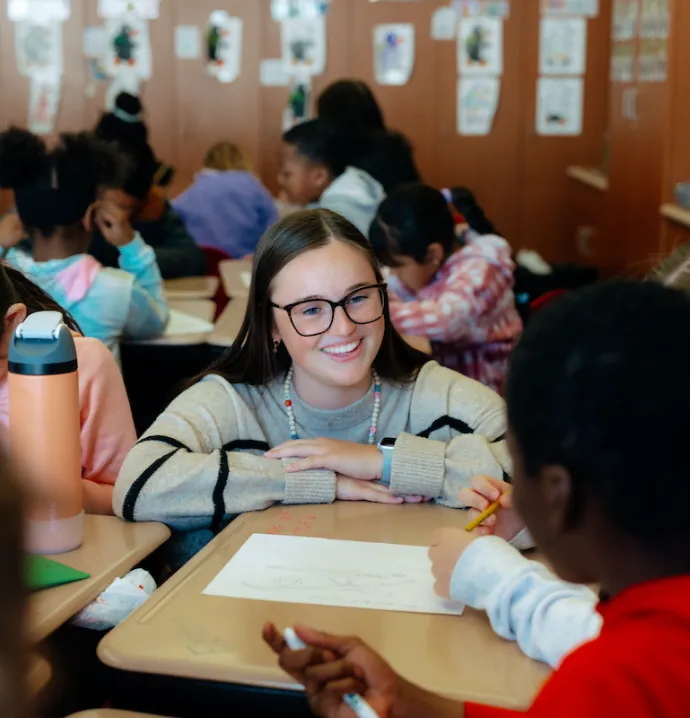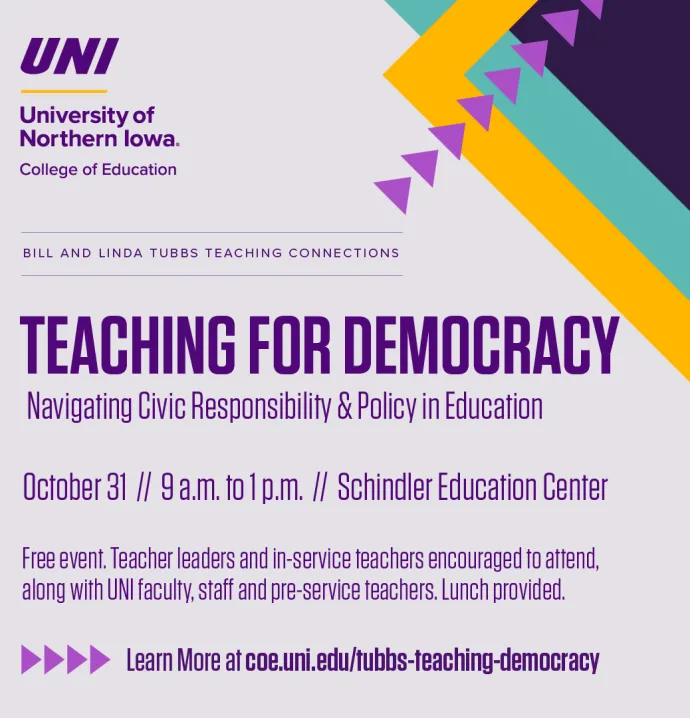The Real Deal: From Para to Educator
The Real Deal: From Para to Educator
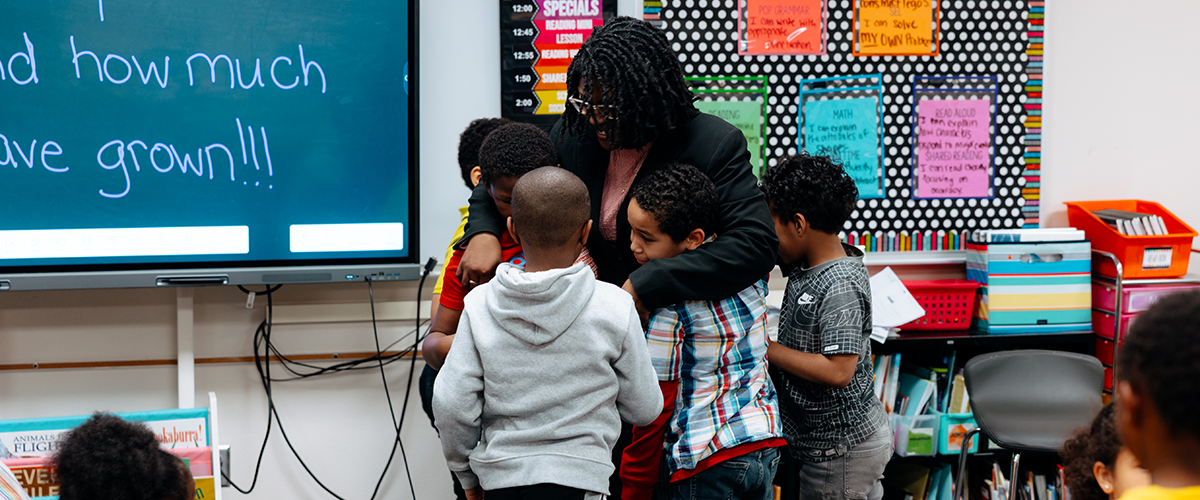
New pathways add fresh faces to the teaching workforce
Davette Watson has always dreamed of becoming a teacher.
But, as it sometimes does, life got in the way.
A little over a decade ago, after graduating from Hawkeye Community College, Watson enrolled at UNI as a general studies major with a minor in health promotions. Her goal was to work in health care to help find a cure for sickle cell anemia — a disease that her father, who’s now deceased, lived with his entire life.
In addition to her studies, Watson was juggling a full-time job and raising her kids as a single parent. She decided to put her education on pause so she could focus more on her family and work. In September 2010, she took a role as a paraeducator — a job she thoroughly enjoyed.
Two years ago, Watson learned of UNI’s Purple Pathway for Paraeducators bachelor of arts program. This accelerated, online, practice-based program enables paraeducators who are interested in becoming a licensed elementary education teacher in Iowa to do so in two years.
“This was my second chance to be able to make my dream of becoming a teacher come true,” Watson says. “The classes being taught online were helpful as I balanced being a full-time mom, wife and employee at school along with being in college.”
While Watson admits she’s experienced a roller coaster of emotions throughout the past couple years with long nights, Saturday classes and challenging assignments, she’s had an “amazing support system” through the Purple Pathway program, including her professors.
Watson graduated with her bachelor’s degree in elementary education this past May and accepted a classroom teaching position at Dr. Walter Cunningham School for Excellence in Waterloo, Iowa — the same school where she served as a paraeducator.
“I am excited to start this new journey and give back to the community I was born and raised in,” she says.
Ashley Knox
Like Watson, Ashley Knox has always enjoyed being around and working with children. In 2014, she began her journey in education as a teacher associate in a four-year-old preschool classroom. A few years later, she became a paraeducator in the Decorah Community School District.
“Being a paraeducator allowed me to work a schedule similar to that of my three children and support students’ learning and growth,” Knox says. “I knew I wanted to be a teacher at some point in my life, and being a para was a great start in following my love for education and helping students.”
When she learned of the Purple Pathway program, it seemed like too good of an opportunity to pass up, so she took a leap and went for it.
“My experience in the Purple Pathway program has been both challenging and rewarding,” Knox says. “Like any college experience, there have been a few bumps along the way, but the staff and instructors provided support and guidance.
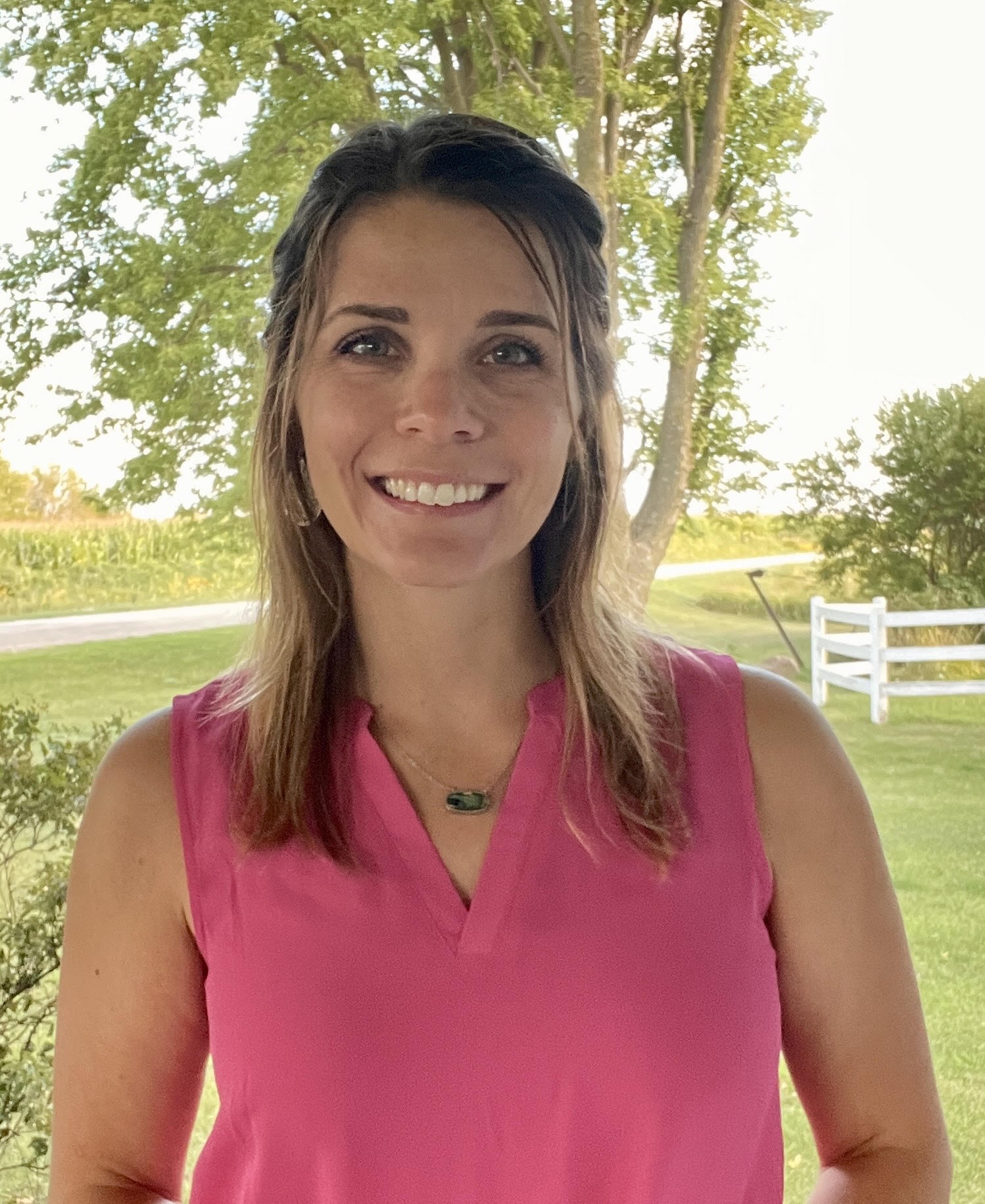
What I've enjoyed most is the friendships I've created with fellow students in my cohort. Despite the virtual setting, we've been able to connect, collaborate and support each other throughout the journey.
Most importantly, though, Knox feels great satisfaction knowing she’s been working toward a career in which she can positively impact students’ lives. This fall, she began her first teaching role as a middle school special education teacher in her hometown of Waukon, Iowa.
“The Purple Pathway program is an excellent opportunity for those serious about returning to school and getting an education degree while requiring flexibility in their day,” she says. “Being able to incorporate my daily work experiences and roles into coursework and assignments contributed to my professional learning in school and the workplace in a way I’m not sure I would have gotten out of a regular online degree.”
Sam Schnell
Similar to Watson and Knox, Sam Schnell has always been good with kids, but her pathway to working with them hasn’t been linear. She graduated high school in 2012, attended Wartburg College for two years and then transferred to UNI for elementary education. At that time, Schnell experienced some mental health issues and took some time off of school to figure out what she wanted to do. She worked as a lead teacher at a daycare for four years, got accepted into Hawkeye Community College for its physical therapy assistant program and graduated in 2021.
While studying for her boards, Schnell needed to find a job to bridge the gap. She reached out to the principal at Orchard Hill Elementary in Cedar Falls, who she’d met through a mutual friend, to see if they had any openings for paraeducators. The answer was yes.
For the past few years, Schnell worked as a para — a time during which she found a new passion.
“Being around kids all day who have access to additional support is where my heart is,” she shares. “I always knew I loved kids and wanted to be around them all day. But when I left UNI in 2015, I never in a million years thought I would end up being a teacher.”
Now, that’s exactly what she can call herself.
Schnell received her bachelor’s degree in elementary education this past spring through the Purple Pathway program and began as a special education teacher at Southdale Elementary in Cedar Falls this fall.
“I am super thankful to have been given this opportunity to find my true calling in life through being a paraeducator,” Schnell says.
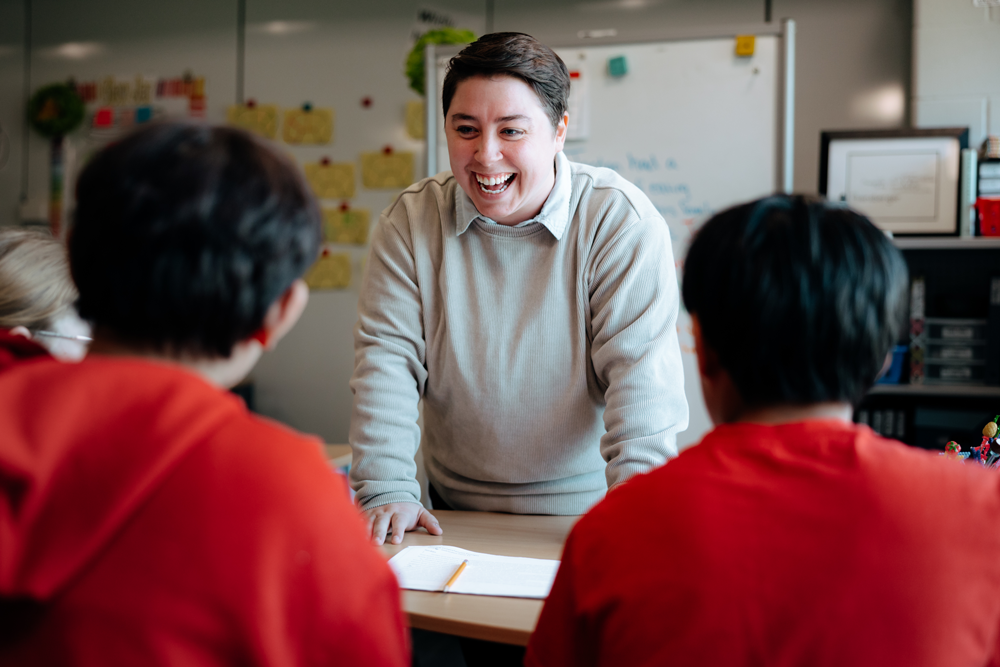
Through the Purple Pathway program, I have been able to connect and learn from some of the best teachers in the Cedar Valley at Orchard Hill Elementary.
Rewards of seeing program impact
Likewise, Kristine Donnelly, Purple Pathway coordinator, sees great value in the program and the impact it can have on the lives of aspiring teachers like Watson, Knox and Schnell – all of whom were part of the first class of 62 program graduates.
“The program is absolutely heartwarming and so rewarding,” she says. “We’ve heard from the apprentices and building administrators that, without this program, the paraeducators wouldn’t have been able to achieve their goal of becoming a teacher.”
Overall, while program improvements and adjustments are ongoing, Donnelly feels the Purple Pathway program has been successful and hopes to see continued interest from paraeducators of all backgrounds.
In this way, the program can help address the teacher shortage – one of the reasons it was started in the first place.
Tara Estep, executive director of enrichment and special programs for Cedar Falls Community Schools, partnered with staff at UNI to launch the program, knowing how critical the work of paraeducators is to students’ success and that some paras aspired to the next level of teaching.
“Being able to pour into our paras and support those dreams has been great,” she says.
‘Grow Your Own’ Making an Impact
The Purple Pathway to Paraeducators is one of several innovative programs showing results as UNI partners with school districts and educational organizations through a “grow your own” approach.
Purple Pathway for School Administrators launched in 2023 in partnership with the Des Moines Public Schools (DMPS), with an emphasis on the UNI Principalship Program (MAE/ASC), which can lead to various administrative positions within a district. This dedicated cohort drew 12 participants in its first year. All 12 will qualify for a conditional PK-12 principalship and evaluators license (Iowa endorsements #189 and #190) by the end of the calendar year, according to Kenneth Hayes, principalship program coordinator.
“It’s going great. There are lots of good conversations about curriculum, leadership and the Des Moines Public Schools’ vision for its incoming leaders. The cohort is already beginning to be tightly connected and feeling like a family of leaders,” he reports. “This group of aspiring administrators will be a great addition to the administrative team at DMPS.”
DMPS plans for a second principalship cohort to start in fall 2025 and has since committed five of its current administrators to enroll in the fall 2024 Doctor of Education (EdD) program, reflecting another extension of the grow-your-own concept.
The Grow Your Own School Psychologist program began in consultation with Green Hills AEA and has continued with several AEA partners, including Central Rivers AEA, as part of two five-year U.S. Department of Education grants coordinated by the UNI School Psychology program. The primarily online program is in its fifth year. Eight graduates have earned their educational specialist degrees and 11 students are currently in year one or year two of their program. Graduates are currently working at the Prairie Lakes Area Education Agency and the Green Hills Area Education Agency.
Two funding initiatives have supported diversifying the workforce in the Waterloo Community School District. Through Teach Waterloo, funded by the R.J. McElroy Trust, the Waterloo Schools Foundation and John Deere Waterloo Operations, 11 fellows have graduated since the program launched in 2018 as a partnership between UNI and the WCSD. Recent graduates completed their studies as part of the Purple Pathway for Paraeducators.
Lead Waterloo, launched in 2023 as an expansion of Teach Waterloo, supports future leaders from within WCSD as they complete the UNI Principalship Program. One student completed his degree this past summer, while the other five entered their second year of the program in fall 2024.


